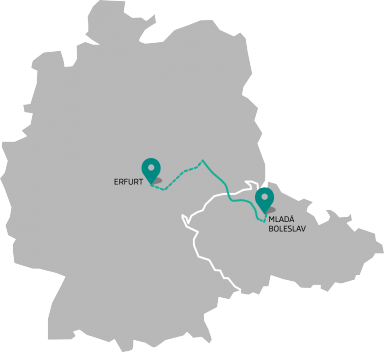On Land, on Water, through the Air

At ŠKODA’s headquarters in Mladá Boleslav, a new press shop is being installed, which for the first time, can also produce large car body parts made of aluminium. The state-of-the-art technology is not only faster and more flexible but also protects the environment. The 'PXL II' is already causing a stir before its installation.
14. 12. 2016 Škoda WorldMedia Box
1 video, 2 images
Show more
Show less












